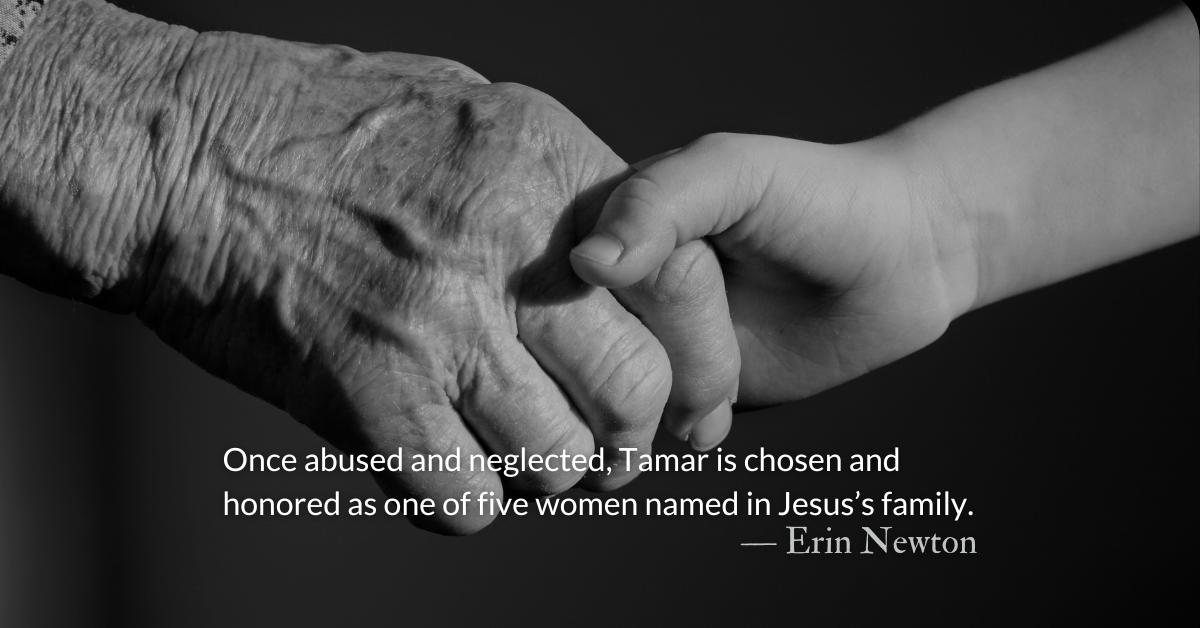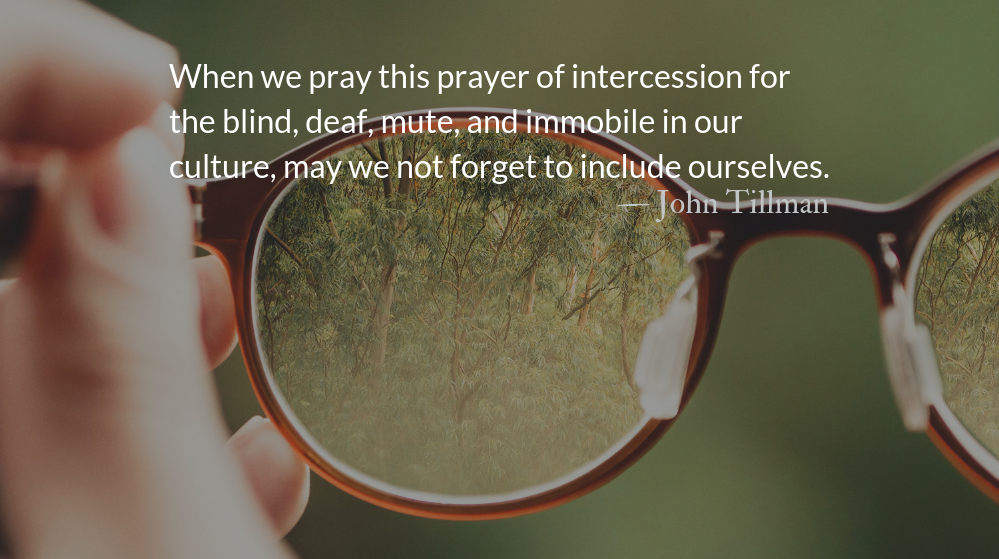Scripture Focus: Matthew 1.1, 3
1 This is the genealogy of Jesus the Messiah the son of David, the son of Abraham:
3 Judah the father of Perez and Zerah, whose mother was Tamar…
Genesis 38.26
26 Judah recognized them and said, “She is more righteous than I, since I wouldn’t give her to my son Shelah.” And he did not sleep with her again.
Reflection: Tamar’s Story — Love of Advent
By Erin Newton
These are the matriarchs of Jesus: Tamar, Rahab, Ruth, Bathsheba, and Mary. This is Tamar’s story.
Born among the Canaanites, Tamar was not one of Abraham’s kin. She married Er, the son of Judah and Shua, his Canaanite wife, and so became (for a short time) part of Abraham’s lineage.
Marital bliss was not to be found, for Er was evil. I imagine a loveless marriage filled with emotional or physical abuse. Perhaps a husband prone to angry outbursts and critical remarks. Perhaps a husband who sought other women or beat his workers. We are left only to wonder. The wickedness of Er, however, exceeded the tolerance of even God, and God ended his days.
Marital bliss certainly vanished. Tamar was a young widow. Among a people heralded for their covenantal righteousness—bound to be blessings among the nations—Tamar would find another form of abuse.
Judah’s second son, Onan, purposely thwarted his cultural duty to provide an heir for Tamar, though not hesitating to take pleasure in sleeping with her. She is used for her body but denied a child. Such selfishness of Onan exceeded the patience of God, and so God ended his days as well.
The final son, Shelah, is given to Tamar as a vague promise. A long time passes. I imagine Tamar living in her father’s house without a husband or child. Two men had abused her and now she must wait for the third. I imagine she worried he would be as terrible as his brothers.
Judah—a man of the covenant of Abraham, the namesake for the nation of God’s people, the patriarch in charge of Tamar’s honor—seeks out a shrine prostitute without hesitation just as the promises to Tamar have been delayed without hesitation. She takes matters into her own hands, maneuvering the situation so that Judah confuses her with a prostitute. She bears twin boys by Judah and reveals his failure of duty.
The men tasked to care for Tamar placed their pleasures and priorities over her dignity and honor.
This was no story of godly love.
But she is not defined by the abuse she suffered at the hands of men or by her assertive (and albeit, morally questionable) actions. Once abused and neglected, Tamar is chosen and honored as one of five women named in Jesus’s family. She is a matriarch of Jesus.
In the love of Jesus belong the abused.
Divine Hours Prayer: The Greeting
I will thank you, O Lord my God, with all my heart, and glorify your Name forevermore. — Psalm 86.12
– From The Divine Hours: Prayers for Summertime by Phyllis Tickle.
Today’s Readings
2 Chronicles 11-12 (Listen 6:00)
Psalms 119-25-48 (Listen 15:14)
Read more about The Wrong People
Many of us have felt like we’re the wrong people to build up God’s kingdom…God uses the Tamars…Rahabs…And the Pauls.
Read more about Supporting Our Work
Donate today to support ad-free content that brings biblical devotionals to inboxes across the world.








